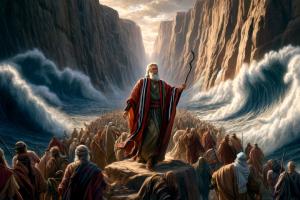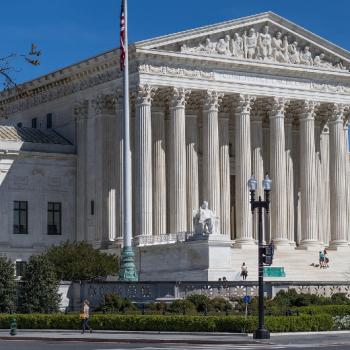eThe big and tragic news late this week has been about the major earthquake that struck Myanmar and Thailand. The destruction in these two cities has already claimed over 1600 lives, and that number is expected to grow.

So far this year, there have been over 130,000 earthquakes, and the number will rise in the coming months. We should not be surprised by these natural disasters; Jesus and the prophets warned us about earthquakes as signs of the last days (Habakkuk 3:6, Matthew 24:3-31):
- Earthquakes
- Famine
- Wars
- False teachers and prophets
Indeed, we have always had our experience with each of these signs, but never with such frequency or magnitude. Just as Jesus predicted, the birth signs are becoming more frequent (Matthew 24:7-8).
Each day we are seeing more and more biblical prophecies play out in the world we live in today. Scripture and prophecy aren’t hypothetical guesses about what is to come. They are the divine revelation of God to us.
No man knows the future, nor can he change it (Ecclesiastes 8:7-8, Matthew 24:36, James 4:13-15). God gave His people prophets to guide and prepare them for the future that only He knows will occur (Deuteronomy 18:18).
What Are Prophets
Prophets, like prophecy, have been twisted and misused over the years. A prophet is defined as “One who foretells the future, who utters divine revelations; predictor.” Biblically, a prophet’s purpose is to be a spokesperson for God and reveal God’s will to His people.

God raised prophets in the Old Testament to help set God’s people apart from the fallen and corrupt world we are all trapped in. Prophets weren’t meant to tell God’s people what they wanted, but what God wanted them to know (Exodus 20:19, John 5:46).
That is why “modern” prophets are corrupted; they focus on what people want and like, instead of what God says. That is why the Bible has a lot to say about prophets and what they do and don’t do.
Prophets speak and teach the words and ways of God, not this world or what we want (1 Corinthians 2:10-12, Hebrews 1:1, 2 Peter 1:20-21). The Bible warns us about false prophets who lead God’s people astray what they want to hear, especially in the last days (Romans 16:17-18, 2 Corinthians 11:13-15, 2 Timothy 3:13-17, 1 John 4:1). The apostles remembered their Jewish education about prophets.
Nāḇî’
In the ancient world there were mystics, sorcerers, and false prophets who led people astray. Rulers and nations turned to mystics and false prophets to receive divine guidance and security. These mystics and false prophets deceived people, even God’s people, into believing and chasing temporary idols like the prince of this world, Satan, who led mankind astray in the beginning (Genesis 3:1-24).
The Hebrew word in the Old Testament for prophet is nāḇî’, and it can also mean “Spokesman, false prophet, or speaker,” depending on the context it is used in. It is obvious that false prophets can easily be mistaken for a true prophet.
So God called and sent His own prophets to guide, teach, and speak to His people (Numbers 12:6, Deuteronomy 18:18-19, 1 Samuel 3:20, 1 Kings 17:13; 19:16, Isaiah 6:8, Hosea 12:10, Zachariah 7:25.)
The Old Testament is full of stories about people God raised up as His prophets to reveal and do God’s will below are but a few:
- Abraham
- Sarah
- Isaac
- Jacob
- Moses
- Miriam
- Aaron
- Joshua
- King David
- King Solomon

The New Testament begins with Jesus fulfilling the prophecy about the Messiah being born of David’s lineage (Matthew 1:17-22). In His teachings, He often quoted the prophets and most frequently quoted the Psalms of King David (Matthew 5:3-12; 15:7-9; 21:13, Luke 4:16-22; 7:22, Mark 13:26).
H referenced the prophet Jeremiah’s teaching about the evil hearts of man (Jeremiah 17:9, Mark 7:21-23). Jesus fulfilled the prophecy about the Messiah being rejected by man because, like a true prophet Jesus didn’t tell God’s people what they wanted (Isaiah 53:3.)
Jesus warned His followers about the hardships coming in the last days when God’s people would turn from God to false prophets and false teachers who would tell them what they wanted to hear (Matthew 7:15-20; 24:11).
The Bible is clear the last days will be full of madness as God’s people join with the world and pursue temporary happiness and earthly greatness (1 Timothy 4:1-3, 2 Timothy 3:1-5.)
March Madness
This week has been a big week in the NCAA sports world as people have been trying to see if their sports bracket accurately predicted who will win the tournament. You don’t have to be a sports fan to know that no one knows the future except God (Proverbs 19:21, Ecclesiastes 7:14; 8:7, Matthew 6:25-34, James 4:13-15).

Unsurprisingly, there are currently no more perfect brackets in the competition. Despite what false prophets teach, no matter how badly we want something, it doesn’t mean it will happen. False prophets and false teachers focus on the will of man, not God’s will.
- Greed
- Happiness
- Greatness
- Power
- Wealth
The prophets and the New Testament writers warned us about God’s people turning from God once again in the last days to temporary idols and an earthly kingdom that will not last (Isaiah 2:2, Ezekiel 8:8-14, Daniel 7:8; 20-25; 11:3-4, Matthew 24:12, 1 Timothy 4:1, Jude 1:18, 1 John 2:18.)
We are already seeing God’s people love wealth and earthly greatness more than the things Jesus taught His followers to value (others, foreigners, the least of these). Wars are being fought for earthly greatness and a kingdom that will not last (Matthew 24:3-31).
The increase of earthquakes is a reminder that this world will pass away soon. I am amazed by how accurate the prophecies are playing out in real-time what God spoke through His Nāḇî’!

















